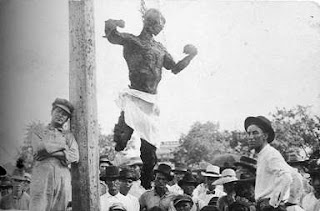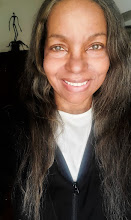The African American West: A Century of Short Stories spans Jim CrowTwentieth Century of black fiction.
 |
| Sunny Nash, Author |
My story, Amen, is in The African-American West: A Century of Short Stories co-edited by Bruce A. Glasrud, award-winning writer-editor and Professor Emeritus of History, California State University, East Bay, with Laurie Champion.
Experts are now calling me a western frontier writer, a title of which I am extremely proud, although I write most every style; writing is my career. What I try to capture in my portrayal of the Old West are the roles of African Americans and other ethnic groups in the development of the Old West.
In addition to Jim Crow laws, slavery, the Civil War, Reconstruction, civil rights, U.S. race relations and other pertinent subjects, my topics include diverse populations that are infrequently documented. The African-American West (University Press, Colorado) proves that there is a great deal of interest in this area fiction writing, demonstrating numerous journalistic reports, historical accounts and personal reflections and memories in the form of short stories among the array of authors in this book, covering the 20th century on the Western Frontier.
 |
|
W.E.B. DuBois/Jesus Christ in Texas
Ralph Ellison/
Then confront World War II
and aftermath: Mister
Toussan
|
Paul Laurence Dunbar 1876-1906
Colleen McElroy 1935 -
Eugene P. Frierson Unknown - 1946
Charles W. Chesnutt 1858 - 1932
Pauline E. Hopkins 1859 - 1930
W.E.B. DuBois 1868 - 1963
William Pickens 1881 - 1954
Anita Scott Coleman 1890 - 1960
Julian Elihu Bagley 1892 - 1981
Nick Aaron Ford 1904 - 1982
Arna Bontemps 1902 - 1973
March Lacy ? - ?
Langston Hughes 1902 - 1967
Margaret Williams ? - ?
Ralph Ellison 1904 - 1994
Frank Yerby 1916 - 1991
John Wesley Groves IV 1923 - 2009
Chester Himes 1909 - 1984
John O. Killens 1916 - 1987
Malvin Wald 1917 - 2008
John A. Williams 1925 -
Mike Thelwell 1939 -
Johnie Scott 1912 - 1976
John R. Posey 1944 -
Jack Burris ? - ?
Maxine Clair 1950 -
Eldridge Cleaver 1935 - 1968
Ed Bullins 1935 -
Ntozake Shange 1948 -
Joyce Carol Thoma 1938 -
Aya de Leon ? - ?
Terry McMillan 1951 -
Harryette Mullen 1953 -
Wanda Coleman 1946 - 2013
Charlotte Watson Sherman 1958 -
James Alan McPherson 1943 -
Jewell Parker Rhodes 1954 -
Cecil M. Brown 1907 - 1987
Percival Everett 1956 -
John Edgar Wideman 1941 -
William Henry Lewis 1968 - 1949
Carolyn Ferrell 1962 -
Reginald McKnight 1956 -
Walter Mosley 1952 -Sunny Nash 1949 -
My story, Amen, like Christ in Texas by W.E.B. Dubois, is about a religious aspect of the African American West. My story is about a religious meeting, typical of those held in the community where I grew up in Texas, still considered at that time to be the Western Frontier (1950s). Amen's little girl witnesses a traveling preacher's dishonesty, similar to an experience I had with a cousin who took me to a revival meeting. I knew it wasn't exactly like going to church, being on a week night after work and school, and conducted in an abandoned rent house. Like me, the little girl in my story, didn't like church and would not have gone had she thought it was a real church. Sunday was enough!
When I think of my early church experiences, I was quite frightened by the congregation's response to a preacher yelling that we were all going to burn up in hell if we did or didn't do certain things. I couldn't understand most of what the preacher spat loudly between clinched teeth. So, I didn't know what I was supposed to do or not do. Everyone else seemed to understand what was expected, throwing hands in the air, getting happy and shouting, Amen! I sat glued to my seat afraid to open my mouth. To get happy in church or a religious meeting was a trance-like condition of individual members of the congregation when they seemed to experience an out-of-body state and be in intimate contact with the spirit. This state could last for a few minutes or longer with the person emerging from the trance with an improved attitude or physical condition.
I am privileged to have been included in such great company as novelists, journalists, essayists, social activists, screen writers, historians, a Buffalo Soldier, Pulitzer Prize winners, a Poet Laureate, and other literary professionals. My story, Amen, was first published in Southwestern American Literature Journal (Texas State University Press), edited by Mark Busby. This story is now a chapter in a work of fiction I am completing. Read an excerpt from "Amen" by Sunny Nash
Black Cowboys on the Old Western Frontier
 |
Hard Cover
Amazon Kindle
|
"There were Black Indians everywhere in this family," Bigmama said. "They were Comanche--full-bloods and half-bloods." Today, we have to think twice about what we call people, depending on the rules of political correctness. Bigmama did not care about political correctness then and would not care about political correctness now.
Black cowboys are also natural occurrences in our family today. In fact, some of the first cowboys on the Texas range were black cowboys, many of whom had been slaves or they had come into the territory for freedom before Texas was a slave state.
 |
| Sunny Nash's Uncle Tinney Bigmama's Brother-in-law |
A woman who spoke her mind in private, Bigmama would never let people know exactly what she thought. "If you are not careful, people will use what you think and feel against you," I heard her say many times. "Why would you give a person bullets to put in a gun to shoot you? No, some things are better left unsaid."
 |
| Bigmama Didn't Shop At Woolworth's FaceBook Page |
A related article is Race Relations in America and Southern California, the story of black women who made a difference in the history of Southern California.
Lynching in the Early Twentieth Century American West
 |
| Lynching in Waco, Texas Jesse Washington 1916 |
Although beatings, murder and lynching on the Western Frontier did involve former slaves and their descendants, much of this violence was not limited to African Americans and Native Americans. Cases of lynching in the West occurred for the same reasons they happened in other parts of the nation. Many of these cases of murder occurred as a result of property rights, territorial disputes, employment, ethnic differences and political competition. Immigrants were often targets. In fact, in California, during the Gold Rush when Chinese miners began attempting to purchase claims and enter the mines, lynching of Chinese miners increased to discourage the group from competing for the precious ore.
Glasrud and Champion included in The African American West DuBois' frontier story, Jesus Christ in Texas, about a Waco, Texas, black man accused of attacking a white woman and being lynched by a mob. The fictionalized lynching in DuBois' short story is reminiscent of the factual lynching of Jesse Washington. Charged with the rape and murder of a white woman, the 17-year-old farmhand, reported to be mentally retarded, was lynched in the frontier town of Waco, Texas, in 1916.
The lynching photograph was taken by a commercial photographer and published on a postcard showing the body of Washington who confessed to raping and killing a white woman, for which he was castrated, mutilated and burned alive by a cheering mob that reportedly included the mayor and police chief. An observer wrote that "Washington was beaten with shovels and bricks. . .[he] was castrated, and his ears were cut off. A tree supported the iron chain that lifted him above the fire. . . Wailing, the boy attempted to climb up the skillet hot chain. For this, the men cut off his fingers." On the back of the postcard was written: “This is the barbecue we had last night. My picture is to the left with a cross over it. Your son, Joe."
Black Women in the Modern American West
Racial tensions were prevalent in many parts of the West and the rest of the nation, in areas for may years after the frontier was officially closed. Although, one would not have expected to find racism and discrimination in housing, transportation, employment, education, public and other aspects of daily life.
A related article is Race Relations in America and Southern California, the story of black women who made a difference in the history of Southern California.








No comments:
Post a Comment
Note: Only a member of this blog may post a comment.